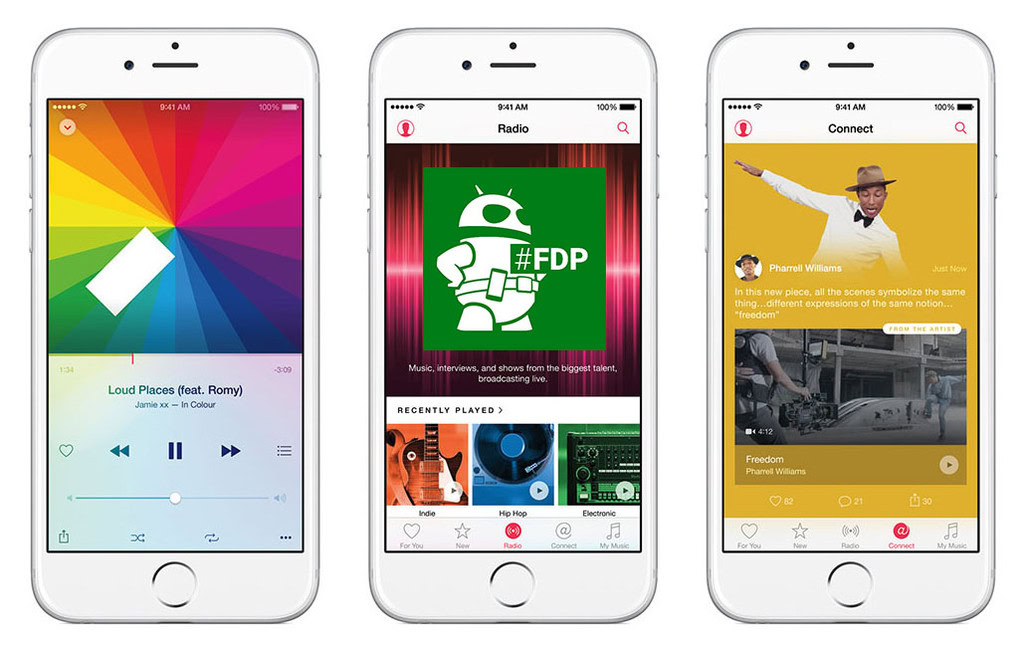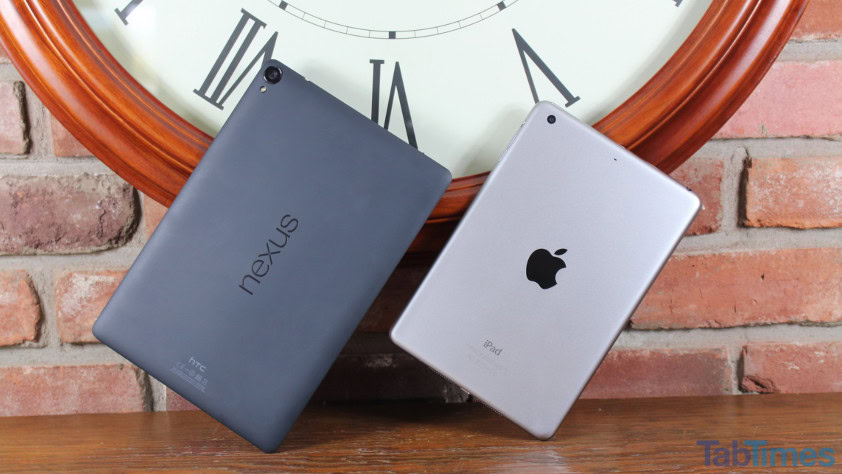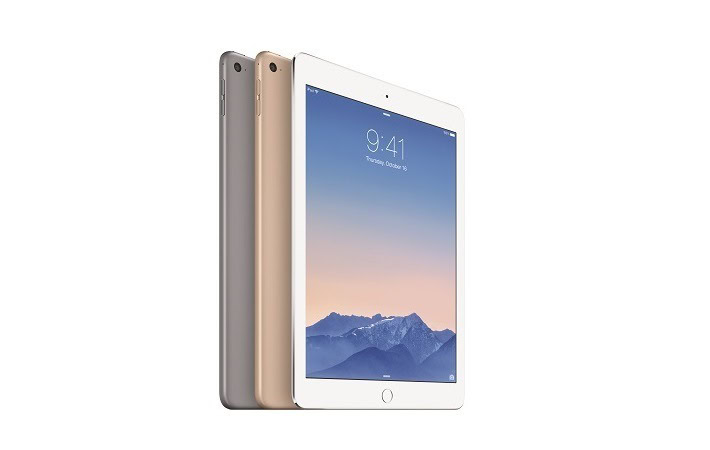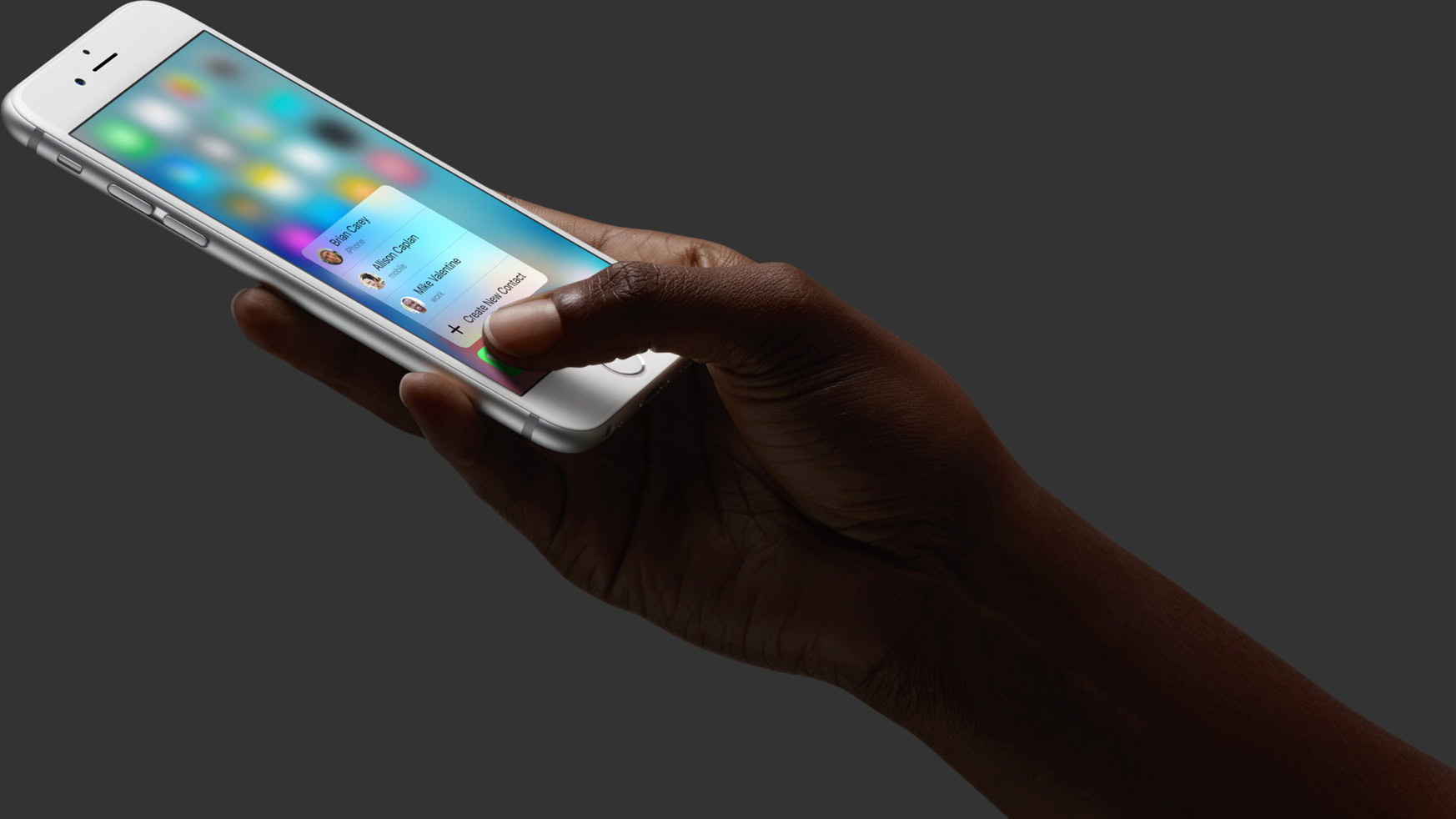Affiliate links on Android Authority may earn us a commission. Learn more.
Stagnation situation: Apple's new line-up reflects Android's dominance
Published onSeptember 16, 2015

Apple. The name, the image, the products, the passion. Steve Jobs. The man, the myth, the legend, the leader. Said alone, either has the ability to agitate; said together and hot damn, that’s some bad weather. For ages nothing could be more detestable to the average Android fan than any given product coming from Cupertino. Unlike iOS and the devices that run it, Google’s mobile operating system has been full of freedom and fun, without walls and dominated by devices. Indeed, the men (and women) at Mountain View have won the war, though ironically the battleground is no longer the hostile environment of old. Indeed, the Apple we hate is so 2008.
This is not to say that Apple has been quiet in the war of words. Tim Cook, while markedly different from Steve Jobs, will still talk tersely when tempted. The key however, is in the scope and scale: the Apple of 2015 is a company that, while unquestionably successful, has stumbled into a somewhat strange situation: stagnation. Indeed when looking at this year’s big mobile line up offerings on the whole, the only real thing I could take away was the disappointment in a lack of truly new game-changing content.
Let’s take a look at what’s happening, what it means for Apple, and most importantly, what it means for Android.
No love lost

While I have used various Apple products, suffice to say the interest has never been a long-term one. There is nothing wrong with the iPhone, iPad, or Apple Watch per se: they are the best at what they do. I just prefer the bountiful benefits of Android, and the myriad mix of manufacturers that make its many models. In keeping tabs with last week’s event however, something dawned upon me: here was Apple introducing a giant sized tablet, complete with multi-tasking and even a stylus. Some have already spoken about the peculiarity of the situation, namely because this is the company after all, that vowed never to do such a thing. Here too, was Apple introducing its now second phablet, the iPhone 6S Plus, another total turnaround from the terse tales it use to tell.
Then, it hit me: Apple isn’t Apple anymore. Or rather, Apple is no longer Steve Jobs. Instead, it’s a company that arguably has no clear, concise vision of what to do, only a vague image of how to achieve it. Whereas the Apple of old arguably gave birth to the modern portable music player, smartphone, tablet, and even laptop design cues, the Apple of today is a decidedly different one.
The Vision and the Future
Few will question that Steve Jobs had a brilliant mind, even if he didn’t tickle Rob Howard’s fancy. What he also had, however, was a very totalitarian vision of his company, its mission and vision, and the very products it could and would produce. He was extremely outspoken, and indeed as Google and Android began its amazing climb to the top, he seemed to get more and more aggressive. By the time iOS 5 had launched – sans Google Maps – it was hard to ever believe Eric Schmidt was called on stage for the launch of the original iPhone.
With Steve Jobs passing however, much scrutiny was placed on just what place Apple would have. The company could arguably go on for a bit longer using the roadmap that Jobs arguably left planned out, but that would always be a very finite plan. Tim Cook’s first real project, judging by the media’s coverage of it and background, seemed to be the Apple Watch. A wearable, and a concept that Android had a year earlier.
The iPhone 6 Plus...here was a product that had to respond to market trends rather than dictate them.
2014 saw an even more unthinkable event however, and that was the launch of a plus-sized phablet. The iPhone 6 – itself larger than any iPhone before it – was dwarfed by the relatively monolithic iPhone 6 Plus. Here was a giant phone coming from a company that once believed the future of displays was fixed at 5-inches, if that. Here was a company that was put in the peculiar position of having to respond to market trends rather than dictate them. Can you imagine the Apple of old ever engaging in such a preposterous proposition?
What a curious fate, to stagnate
If there is one thing that was felt but not spoken at last week’s Apple event, it was the manner in which Cupertino has begun to stagnate. Given that Steve Jobs arguably gave birth to the modern smartphone, there was a point in time when Apple held the torch and all other companies were branded as imitators. In more recent years however, the “new” inventions seen on iOS have basically been pilfered directly from Android and other mobile operating systems. Things like the Notification Center for example, or the moving wallpapers, or even Google Now-esque functionality Siri has been given. Things like widgets (however limited they may be), things like split-screen multitasking. Things like a stylus.

Sill, nothing rings truer than the existence of the iPhone 6S Plus and the iPad Pro. In the beginning, it was perfectly acceptable for Steve Jobs to go on a tirade against the practicality and sensibility of phablets or the reintroduction of a stylus. The Galaxy Note was an untested platform and indeed almost a return to the PDA mentality of the 90’s. Fittingly enough however, Samsung’s pushing the envelope of size standards worked in its favor, and now the basic Android flagship needs to land at around 5-inches or slightly larger.
Apple, meanwhile, had to finally follow suit and release not only a phablet last year, but so too did it have to increase the screen size of its flagship model the iPhone 6/iPhone 6S. While not yet 5-inches, it’s almost there and indeed large enough so as to force people to want a 4-inch iPhone 6C. The iPad Pro, while arguably going more for the Microsoft jugular, is in many ways also an acceptance that Samsung’s Galaxy Note series, and indeed the Galaxy Note PRO 12.2, was a good idea. The company that vehemently avoided split screen and use of a proper pen now includes one and is charging quite a pretty penny for the other.

And what of the iPad Air 2? No refresh announced. The iPad Mini 4? Despite having a thinner build and better internals, Apple didn’t even bother to announce it, rather the tame tablet was thrown in a final slide as so much an afterthoughts to the Pro.
Lo and behold, even though Apple is still willing to take jabs at Android with respect to minor issues, it’s curiously silent when it comes to major ones. Tim Cook, while not Steve Jobs, has avoided making the polarizing, antagonizing rants and ramblings that characterized his predecessor. While part of it might be his own personal character and demeanor, part of it must also be the simple reality that Apple itself has begun to stagnate and therefore isn’t in any position to be calling the shots.
Android on alert?
As far as Android is concerned, it need not worry about Apple at all anymore. Aside from any possible lawsuits that might spring up, Google is basically set as the current king of the mobile space. Until Apple can create a major boom again, the chances of a major decrease in market share is unlikely. This is all the more relevant now that super-affordable mobile phones like those from Huawei, Meizu, Xiaomi, and Micromax have begun to hit some of the largest countries on the planet: it’s not iOS they are buying into, it’s Google.
Perhaps the only real area Google should be focusing on in terms of OS parody is in the app store. iOS has, and will continue to have, far more top tier apps especially when it comes to tablets. To this day it still frustrates me that I need to use an iPad to play a game like Oceanhorn simply because it doesn’t exist on Android.
Indeed Apple may continue to do itself in should more major mishaps like the Maps disaster or clock copying occur.
Wanted: ideas (big ones)

As we discussed a short while ago, Force Touch (or 3D Touch as it’s now branded) is Apple’s main new contribution to iOS and the iPhone this year. The feature, while interesting, is decidedly counter-intuitive to smooth UI habits and not only requires re-learning the basics but also has added extra weight to the new hardware. That 3D Touch was unveiled as the big “it thing” for the iPhone 6S is really telling. This isn’t something to make your life easier like Siri allegedly was. This isn’t designed to improve security like the fingerprint sensor was. This is a new way to interact with the device, allowing it to do features that are of questionable value. The fact that Samsung had offered Hovering on the Galaxy S phones for some time and then dropped it entirely should provide some indication as to just how useful it is to “preview” apps and contents without opening them.
Apple's greatest gift is having unlimited control over iOS; its greatest curse is that no one else does.
The question is really, where can Apple go from here? Given that it didn’t exactly create many of the ideas it’s been selling (multi-touch had been around for example) the most logical answer is that it will continue to “borrow” from Android and its OEMs. While this ultimately might not matter, it does sit sour for some of the more old-school users who have held a grudge against the company ever since the iPhone’s introduction.
Perhaps the greatest irony however, is the paradoxical existence Apple now lives: the company can earn over 90% of the industry’s profits due to total control and exclusivity of iOS, yet at the same time, lacks any real push or drive to go further because there is no one to compete with. Apple’s greatest gift is that it has unlimited control over iOS; its greatest curse is that no one else does.